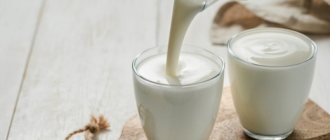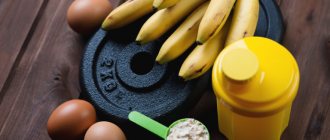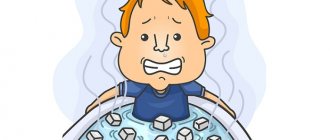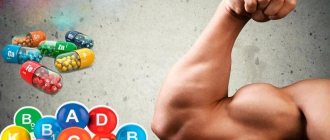Water is the key element that makes up the human body. According to various studies, the percentage of water content in the human body varies from 75% to 90%. Naturally, this ratio affects all processes occurring in the human body, and often people who start playing sports wonder: is it possible to drink water after and during training? There are many myths and speculations associated with this issue; today we will look into this issue and give some tips on how to properly drink water during training.
How much water do we lose during training?
If we consider the average person, then during the day the human body loses about:
- 2 liters of water with natural body processes,
- 250-300 ml with breathing,
- 400 ml of sweating,
- 1-1.5 liters of urine output,
- 100 ml with feces.
As a result, more than 2 liters per day are removed from the body naturally, which is approximately 5% of all water in our body. During training, we create increased stress on the body, which increases the removal of water from the body through breathing and sweating. During training, we lose an additional 3-5% of water reserves. This indicator depends on the conditions and intensity of the training.
Why does this volume need to be replenished during sports?
As we have already found out above, the blood loses its liquid part, but it contains not only dissolved substances, but also formed elements (red blood cells, leukocytes, etc.). Therefore, when fluid is lost, it literally becomes thicker, which is why the heart has to work harder (throw out more blood and contract more often) to deliver oxygen and nutrients to the tissues. And I remind you that at this time you are training - which also requires more intense work of the heart.
Moreover, the exchange of substances between blood and tissues occurs also due to the difference in fluid concentrations in them. And if the blood takes it from the tissues, then the nutrients will be drawn for the water (since the body cannot take only water or only the substances in it, these are integral parts of one process) - that is, the hunger of the tissues will only intensify during training.
It turns out that if you drink during training, then, on the contrary, you help the body by maintaining a constant blood composition. More fluid blood is easier for the heart to circulate throughout the body. This is how the first myth collapses - water helps to dilute the blood, which reduces the load on the heart.
What about the feeling of discomfort? It occurs because even water needs time to be absorbed. On average, the liquid remains in the stomach for up to 10 minutes. This is what causes the feeling of discomfort - a large volume of fluid in the stomach when, for example, running, also moves inside the stomach, which provokes not the most pleasant sensations.
But there is nothing dangerous about it. The walls of the stomach are strong enough to withstand pressure, and in case of overdistension of the stomach that is dangerous for the body (if it is so full), nature has invented a gag reflex.
Athletes solve this problem this way - they split up their fluid intake into several stages: on average 200-300 ml at a time (that is, ⅕ of the average loss per workout (1-2% of body weight); such a volume does not create significant discomfort, but at the same time, it replenishes some of the lost fluid. And rinsing the mouth with water dulls the feeling of thirst and dry mouth, that is, athletes still swallow part of the water they drink, and rinse the rest with the purpose described above.
Is it possible to drink water after training?
As already mentioned, the body is 80% water, and a loss of more than 20% of water is fatal. And here we come to the main question - is it possible to drink water after training? Oddly enough, there is no clear answer to this question, since it all depends on the conditions and goals of your training. If we are talking about drinking water immediately after finishing a workout, then yes, you can and even need to drink water if your workout is aimed at burning fat.
It has been scientifically proven that the lipolysis process requires water. If you do not drink water after such a workout, then the body goes into a state of shock and begins to break down fat to produce “natural” water. But when drinking water afterwards, the body will “deposit” the incoming water, resulting in the formation of swelling and stretch marks caused by water deposition. That is, a constant water balance must be maintained in the body.
And now, against the backdrop of all the above, let's figure out whether to drink water after training?
Yes, drink. But how much and when is determined by your individual parameters. If you are engaged in fat-burning workouts, then you need to drink both during and after training. Before undertaking any activity, check your body's water levels. For example, if you are a marathon or long-distance runner, then it is vital for you to drink during and after training, since the muscle mass of such a runner is minimal in relation to other athletes and the level of sweating and breathing is at a higher temporary level.
Sip by sip
It will not be possible to get drunk “for future use” before training, since metabolic processes in the body are ongoing. An hour or two before class, you can drink 200-300 ml of water (this is just a small bottle of water). This will help your body absorb the liquid you drink and empty your bladder before exercise. Drinking too much while exercising is also not a good idea. “If a person is actively involved in sports, he should drink from 200 to 600 ml in addition to the daily norm,” explains Marina Kopytko, candidate of medical sciences, nutritionist, head of the dietology department of the Revital Clinic . — You should drink water in small sips, and its temperature should not be lower than room temperature, preferably closer to hot. The stomach does not absorb cold water: first the body brings it to the required temperature and only then releases it into the digestive system.” After training, it is also worth drinking a glass of water to replenish its deficiency.
How to replace water
Sports professionals often indulge in “sports drinks” that help restore fluid loss and maintain electrolyte balance in the body.
This is very important for athletes, especially after competitions and long training sessions, as they quickly replenish energy. But for regular gym classes they are not needed.
It's important to understand that a post-workout shake or sports drink is no substitute for clean, healthy water. They can be included in the drinking regime only as additional liquid.
Many people replace water with tea, juice, carbonated drinks and even alcohol.
- Yes, they also contain water, but the digestive system perceives such drinks as food, albeit liquid.
- The body will have to put in maximum effort and time to get water from drinks.
- After all, only simple clean water does not contain calories, which means it is quickly absorbed by the body.
- It is very important to understand that a person’s productivity depends on the amount of fluid he drinks.
- And its deficiency can disable vital organs and systems.
- Therefore, you need to monitor your health - exercise and drink water in the right amount.
Drink warm or cold
After intense exercise, especially on a hot summer day, you can’t wait to take a sip of cold water, but this is not recommended. Cold water sharply constricts blood vessels, and as a result, an increase in blood pressure and a deterioration in heart function.
Drinking hot water is also not an option. It burns the mucous membrane, which contributes to indigestion.
The best option is to drink water at room temperature. Such water is absorbed by the body quickly enough, without requiring extra energy costs.
Preventing diseases and illnesses[edit | edit code]
Source:
"The Mass or the Truth About Nutrition, Supplements and Chemistry in Bodybuilding"
.
Author
: Sergey Antonovich
Publisher
: AS Media Grand, 2012.
Water and kidney stones[edit | edit code]
Perhaps the most surprising fact about water is the impact that chronic, mild dehydration has on health and disease. Traditionally, Hippocrates recommended drinking large quantities of water to increase urine production and reduce the recurrence of stones in the urinary tract. Today, approximately 12-15% of the population will develop a kidney stone at some point in their lives.
Italian scientists have noticed that excruciating pain from kidney stones most often haunts those who work in rooms with high temperatures. Apparently, the heat disrupts water-salt metabolism. Hence the stones. And at the same time, some advice: you need to drink more! To some extent, it applies to bodybuilders. During training, the stress of dehydration of the body is added to the strength stress. After 3-5 years, sad consequences in the form of kidney stones are possible. To prevent this from happening, drink water right in the gym. Every 15-20 minutes, take 3-4 sips of pure water or sports drink.
Cardiovascular system[edit | edit code]
Dehydration can also cause mitral valve prolapse, a defect in one of the heart valves that controls the flow of blood between the chambers of the heart. Mitral valve prolapse is considered a relatively harmless condition, but in rare cases it can cause heart palpitations, chest pain and other symptoms of heart disease. In 14 healthy women with normal cardiac function, mitral valve prolapse was caused by dehydration.
What can you add to water?
To diversify the drinking regimen, you can add the following to the water for flavor:
- Lemon juice. Lemon is used to normalize metabolism. It removes toxins from the body. It is especially useful for people who want to lose excess weight.
- Mint. The scent of mint promotes a healthy digestive process and prevents dehydration.
- Honey added to water normalizes the functioning of the liver and gastrointestinal tract, strengthens the immune system and calms the nerves.
- Berries. In addition to the pleasant aroma and taste, the berries enrich the drink with useful elements.
Water quality[edit | edit code]
These reasons alone are more than enough to take your water consumption seriously. But before you consider this issue, pay attention to the quality of the water you drink. Tap water is not always suitable for drinking, because it may contain many harmful organic and inorganic impurities of zinc, lead, potassium, magnesium, etc. They interfere with the biochemistry of muscles and do not contribute to their growth in any way. Boiling and subsequent settling help solve this problem very slightly. But the best option would be to drink filtered water using household filters. And the more advanced the filter, the better it is (but, as a rule, more expensive). You can also buy filtered water in special bottles. It is cleaned with industrial filters, which, unlike household filters, have a higher degree of purification. But many experts believe that such water is less useful, because it is due to the increased degree of purification that many useful substances are removed from it, and besides, its long-term storage in plastic containers is in itself harmful. The best option in the case of filtered water is to add a small amount of sea salt or any fruit juice to it immediately before drinking.
Read more:
What to drink during training











